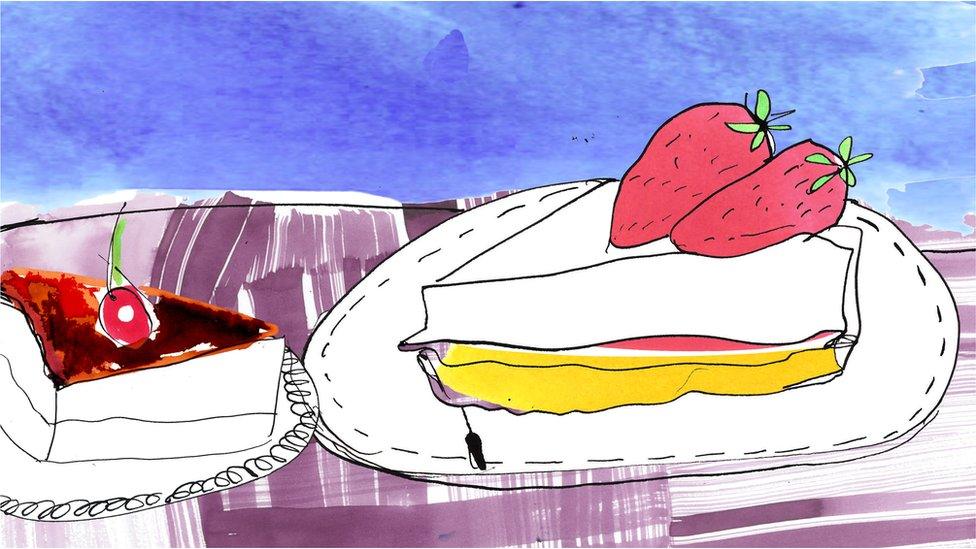GCSE results rise despite tougher exams
- Published
- comments
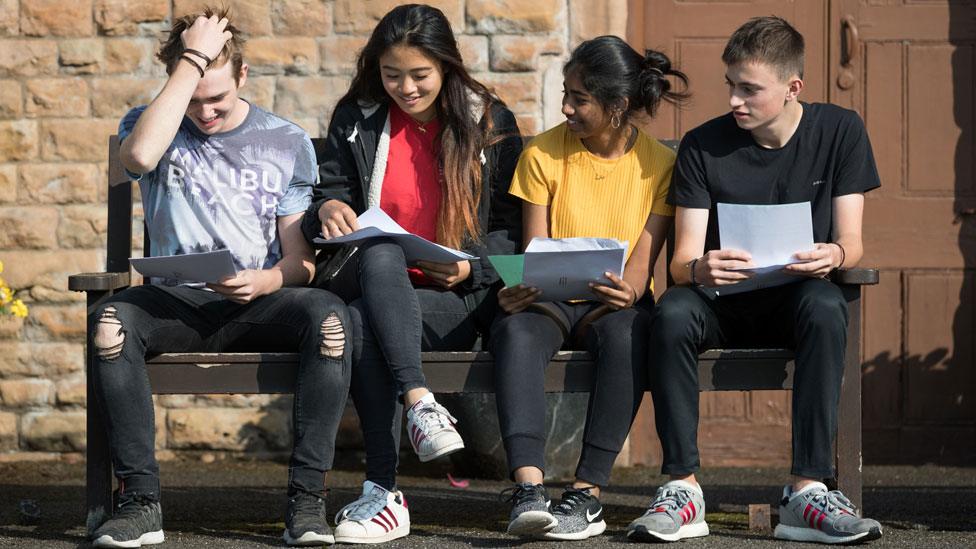
GCSE pass rates in England, Wales and Northern Ireland have risen this year - despite an overhaul to make the exams more demanding.
The proportion of students reaching the pass levels - England's new grade 4 and grade C in Wales and Northern Ireland - is up by 0.5% to 66.9%.
For the first time most of the GCSEs in England are being graded from 9 to 1.
About 4% of entries received the top grade 9 - and 732 pupils scored a clean sweep of grade 9s in all subjects.
Girls continued to do better than boys - in terms of both the highest grades and in the pass rate. But the gender gap has narrowed this year with boys catching up.
In total, 17.2% of boys' entries scored an A or a 7, up from 16.4% last year, while girls' remained static at 23.7%.
GCSE students celebrate their results
About 90% of entries in England this year were in the tougher form of GCSE, with more difficult content and mostly marked on final exams, rather than coursework.
International standards
The intention is to pitch the exams at the standard of the highest-achieving countries in education, such as Singapore and Finland.
Pupils in Wales and Northern Ireland continue to get their results graded from A* to G.
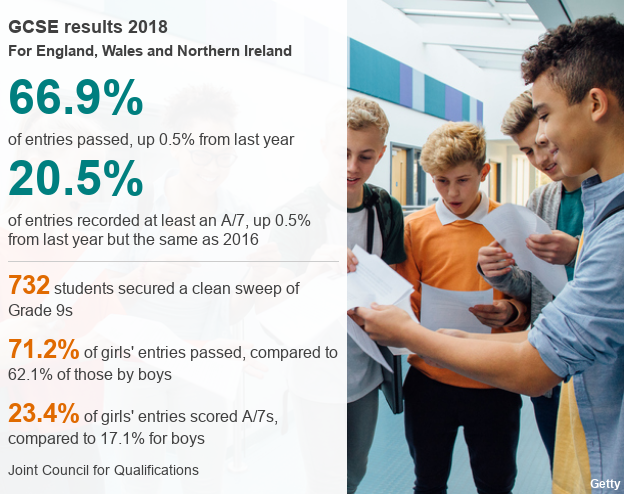
A total of 20 of the most popular GCSE subjects in England have been graded for the first time in the numerical format - plus English and maths, which were introduced in the new format last year.
These include history, geography, sciences and modern languages, all of which have been designed to be more difficult.
Of those achieving all grade 9s - and taking at least seven of the new GCSEs - almost two-thirds were girls. Only 732 pupils out of more than half a million candidates had a clean sweep of the top grades.
Kevin Courtney of the National Education Union said "success is being rationed" with fewer people getting the new top grade compared with the previous A*.
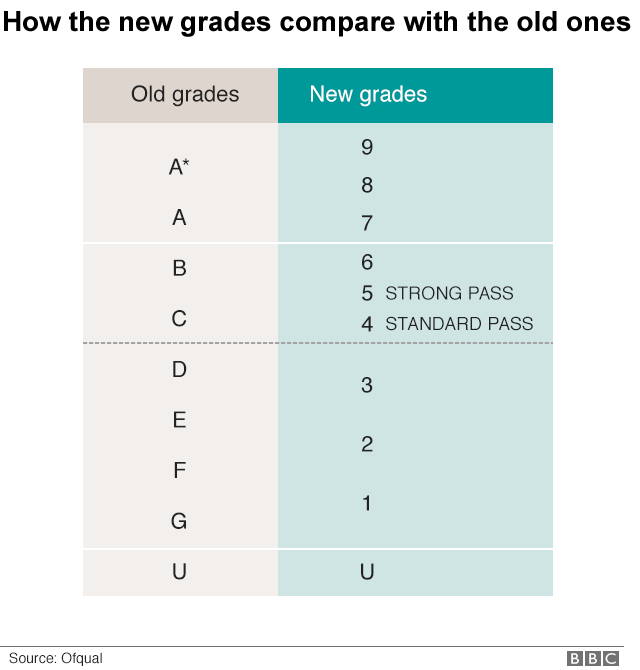
Despite the changes, exam regulators have wanted to maintain stability with previous years, and prevent a "guinea pig" cohort from being disadvantaged.
This means that the overall pass rate - combining more than five million entries in England, Wales and Northern Ireland - has stayed broadly similar, up by 0.5 percentage point to 66.9% compared with last year.
The proportion getting the equivalent of an A grade and above - now grades 7, 8 and 9 - has also remained similar, at about 20%.
'Excessively difficult'
This has meant much lower grade boundaries for some subjects.
For one exam board, the grade 4 pass mark for maths was about 21%, chemistry 26% and biology 27%.
What happens next: Advice on GCSE results and beyond
To reach the pass mark in English literature, pupils had to score 42%.
Sarah Robertson of the Royal Society of Chemistry said the grade boundaries in the sciences raised concerns about exam papers being "barely accessible to the lower attaining students".
Exam resits
As long as teenagers are in full-time education in England, they must retake English and maths until they get at least a grade 4.
This year, 161,000 students aged 17 or older - so those likely to be candidates who were resitting - took maths GCSE and 149,000 English language.
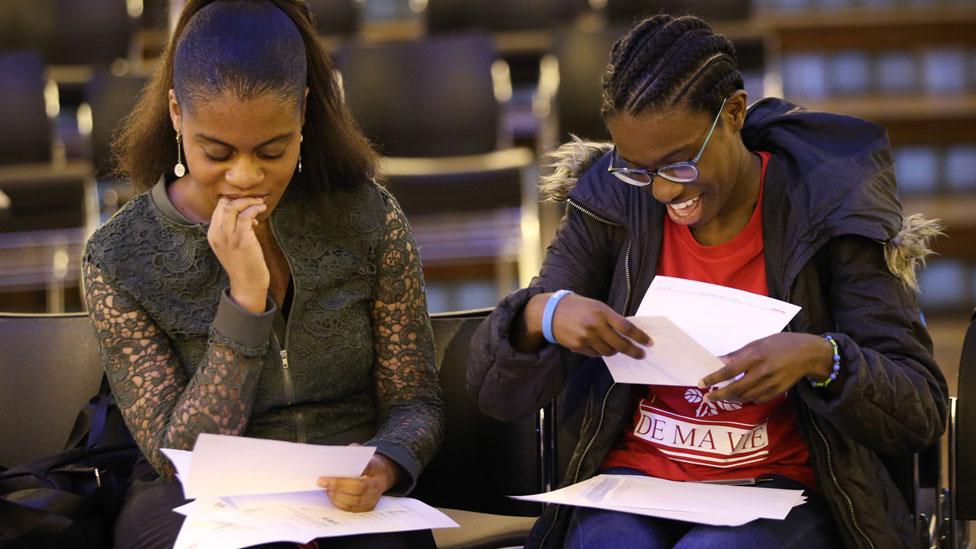
In England, most of the results this year are in new 9 to 1 grades
But of these, only 22.7% achieved a 4 grade in maths and 33.1% a 4 in English.
The private equity foundation, Impetus-PEF, said thousands of young people were being let down, especially those from disadvantaged backgrounds.
Chief executive Andy Ratcliffe said thousands of youngsters were "stuck in an endless cycle of resits".

Selina Wang from Burgess Hill Girls school achieved nine grade 9s - one of 732 such high achieving pupils
Geoff Barton, leader of the ASCL head teachers' union, said there should be more focus on the youngsters who scored at the lower end of the scale.
"Under the old GCSE, if you got an F or a G, whilst you may not have felt particularly pleased with it, there wasn't a national narrative saying 'you have failed to get the standard pass, you have failed to get a strong pass', yet that is now built in.
"I just think we have to rethink what our education system is trying to do. If we had a more global outlook, our starting point would be, like all of those competitors of ours, what do we need to do so that those 11 years of teaching help every child to have something? It might not be a GCSE, but something.
"That's where the reform should have been."

Pupils in Northern Ireland get results graded A*-G
Sally Collier, head of the exam regulator Ofqual, said: "Students picking up their results today can be confident they have achieved the grades their performances deserve."
School Standards Minister Nick Gibb said: "Education standards are rising in our schools and pupils have shown their abilities by achieving excellent results today."
- Published23 August 2018

- Published22 August 2018
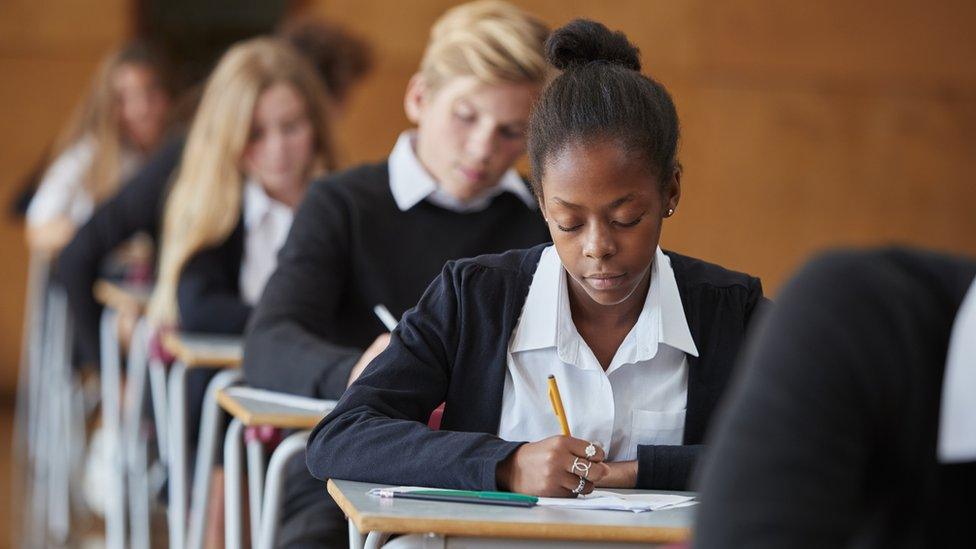
- Published23 August 2018
